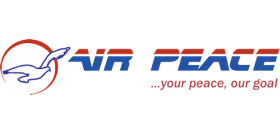 Air Peace Expands Fleet Amidst E195-E2 Grounding
Air Peace Expands Fleet Amidst E195-E2 Grounding
Air Peace, a leading Nigerian airline, is proactively managing its fleet operations in response to the ongoing grounding of its Embraer E195-E2 aircraft. The airline has secured a fifth Airbus A320 through an ACMI (Aircraft, Crew, Maintenance, and Insurance) lease to bolster its capacity and maintain essential services.
This strategic move comes as Air Peace grapples with the prolonged grounding of its five E195-E2 jets due to persistent engine issues. These aircraft, powered by Pratt & Whitney PW1900G geared turbofan engines, have been plagued by reliability problems affecting several airlines globally. The grounding has significantly impacted Air Peace’s operational capacity, prompting the airline to explore alternative solutions.
The addition of the A320 through ACMI leasing provides Air Peace with much-needed flexibility to adjust its capacity and maintain service continuity. ACMI leasing allows airlines to quickly acquire aircraft, crew, maintenance, and insurance, offering a comprehensive solution for managing operational disruptions and fluctuating demand. This approach is becoming increasingly popular among African airlines seeking to navigate the challenges of a volatile aviation market.
In addition to the A320 acquisition, Air Peace is also preparing to integrate a dry-leased Embraer E195 (E1) into its fleet. This older-generation E195 will serve as an interim replacement for the grounded E195-E2s, providing additional capacity while the airline awaits a long-term solution to the engine issues.
The dry-leasing arrangement allows Air Peace to operate the aircraft without the added responsibility of crew and maintenance, which are handled by the leasing company. This approach offers a cost-effective way to bridge the capacity gap and maintain service on key routes while minimizing operational complexity.
Air Peace’s proactive fleet management strategy reflects the airline’s commitment to minimizing disruptions for its passengers. By leveraging both ACMI and dry leasing options, the airline is demonstrating its adaptability and resilience in the face of unforeseen challenges. This approach also highlights the growing importance of flexible fleet solutions in the African aviation industry.
The ACMI leasing market in Africa is experiencing significant growth, driven by factors such as rising air travel demand, operational disruptions, and the need for greater fleet flexibility. Air Peace’s decision to utilize ACMI leasing aligns with this broader industry trend, reflecting the airline’s proactive approach to capacity management.
The ongoing engine issues affecting the E195-E2 have had widespread implications for the global aviation industry. Several airlines, including KLM Cityhopper, Porter Airlines, Azul, and TUI fly Belgium, have experienced groundings and operational disruptions due to these engine problems. The situation underscores the challenges faced by airlines in managing fleet reliability and maintaining service continuity in a complex global supply chain environment.
Air Peace’s fleet adjustments, including the addition of the A320 and the E195, will impact the airline’s overall capacity and route network. The A320, a popular narrowbody aircraft, offers versatility for regional and short-haul routes, while the E195 provides additional capacity for longer routes. These additions will enable Air Peace to maintain service on key routes and potentially expand its network reach.
The airline’s fleet currently includes a mix of Boeing 737, 777, and Embraer ERJ 145 aircraft, along with the newly leased A320 and E195. This diverse fleet allows Air Peace to serve a range of destinations and cater to varying passenger demands. The airline also has pending orders for new aircraft, including Embraer E175s and additional E195-E2s, as well as Boeing 737 MAX aircraft, indicating its commitment to long-term fleet modernization and expansion.
Air Peace’s strategic fleet management decisions are closely watched by industry analysts and travel professionals. The airline’s ability to navigate the current challenges and maintain operational efficiency will be crucial for its continued success in the competitive Nigerian and West African aviation markets. The airline’s proactive approach to leasing and fleet adjustments positions it to weather the current storm and emerge stronger in the long run.
